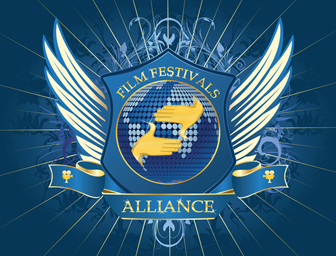|
Q: What was your overall role?

I served as both Producer and Director of �Natsanat.�
Q: Did you always want to be in the film Industry?
I have always enjoyed being a storyteller. I have focused on the
different platforms that promote storytelling; radio, television and
now the film industry.
Q: Tell us how Natsanat evolved.
I was working together with the First Lady of Ethiopia, Azeb Mesfin,
on an educational initiative for rural girls. During a breakfast
meeting, the First Lady and her friends began reminiscing about
their teenage years when they challenged all cultural norms while
fighting for freedom in the bush. I was unaware of what these women
had endured and I felt compelled to share their stories.
Q: Did you have any unusual difficulties during filming?
There were no unusual difficulties. The women were excited to be
given a chance to tell their stories.
Q: Will winning awards help promote the film? How so?
Being selected for screening at an international film festival
allows the stories of these women freedom fighters to be seen and
heard by audiences across the world for the very first time.
Q: Where were the locations?
�Natsanat� was filmed on location in Ethiopia and also in the United
States.
Q: To what audience is Natsanat suited?
�Natsanat� is suited to any audience that appreciates the value of
freedom and equality.
Q: What was it like working with various sources? How did you go
about choosing who to interview?
It was a privilege to work with all of the individuals associated
with the film. H.E. Azeb Mesfin was the prime organizer; without her
help the documentary could not have been made. Each of the women
that we interviewed also had friends to whom they provided an
introduction.
Q: What has the feedback been so far?
The feedback has been very positive. During Q&A sessions following
the screenings the audiences have been requesting more information.
The most meaningful feedback for me came from a group of high school
girls that were invited to view the film as part of the WOW Film
Festival in New South Wales, Australia. They were inspired by the
capacity of teen aged women to achieve, against all odds.
Q: Are you working on any new projects?
There are several new projects in development.
Q: Tell us about your own background. Where you were born? Where
did you study film? What was your first movie? What was your
previous job? Are you a full-time filmmaker?
I was born in New Haven, Connecticut. My father was a Congregational
Rabbi and our home was open to people from all walks of life. I was
raised in a �storytelling� environment. When I went to Barnard
College in New York City I became involved with WKCR-FM and had a
weekly radio program. Years later, President Bush appointed me to
serve as a director of the Board for International Broadcasting.
Afterwards, President Clinton appointed me to serve as a member of
the Broadcasting Board of Governors. During the administration of
President George W. Bush I was appointed to serve on the board of
the Corporation for Public Broadcasting that I subsequently chaired.
Now I am a partner at HQ Creative LLC , a multifaceted digital
production company.
Q: What was your first award? And how did you feel at that time?.
One of the first awards that I received was from the Essex County
Board of Chosen Freeholders who
commended my career in broadcasting and my advocacy on behalf of
women�s rights in celebration of Women�s History Month. I was
honored to be so acknowledged.
Q: What was the best part of the project?
The best part of the project was having the opportunity to engage
with the women of �Natsanat.� It is a privilege to be able to call
them my friends.
Q: What was the most challenging?

The challenge was deciding when to stop filming. There was so much
more that could be told but there was an uncertainty as to how much
would an audience want to watch about Ethiopian women.
Q: Are you pleased with the overall outcome?
Very!
Q: What are your hopes and dreams for the film?
I hope that the women of �Natsanat� will serve as role models for
other women who are seeking peace and equality.
Q: How long did it take to complete the film?
The film took the better part of two years.
Q: Will you do a sequel?
We are considering a sequel that will focus on justice in the
aftermath of freedom.
Q: Why is this subject important to you?
All too often, during times of conflict, women and children are the
first victims. It is important to recognize that women can stand up,
defend themselves and succeed.
Q: Does this film send the message you intended?
Yes. �Natsanat� tells the story of women who fought for freedom,
challenged cultural norms and succeeded to have equality written as
an article in Ethiopia�s Constitution.
Q: Do most people just turn a blind eye when they hear of these
issues?
The audiences with whom I have engaged in Q&A have all wanted to
learn more about these women and their 17 year fight for freedom.
Q: Why the title?
�Natsanat� means freedom in the Ethiopian language of Amharic.
Freedom is what these women fought to achieve for 17 years.
Q: Advice to others who might like to follow in your footsteps?
It is always important to listen carefully to what is being said
around you. You might hear a compelling story when you least expect
it.
Q: Is this a film that young people, college or high school
students could benefit from?
This is a film that can benefit young viewers. The women who are
interviewed were teenagers at the time that the fight for freedom
was occurring.
Q: Has the film won any other awards?
�Natsanat� has won a number of awards including;
Best International Documentary at the World of Women Film Festival
and the International Black Film Festival of Nashville
Best Documentary Short at the San Francisco Docfest and the Female
Eye International Film Festival.
It received the Rising Star Award from the Canada International Film
Festival and was an Official Selection at the Madrid International
Film Festival and the St. Tropez International Film Festival.
Q: Why Africa? What connection do you have on personal level with
this continent?
I do not feel a personal connection specifically with the African
continent. I do believe that it is important to support and applaud
women who have brought about positive changes locally in their
communities and nationally within their countries.
Q: How do you see yourself in the next 10 years?
I enjoy being a storyteller. I hope that I will have the opportunity
to listen, learn and share compelling stories in the coming years.
|




